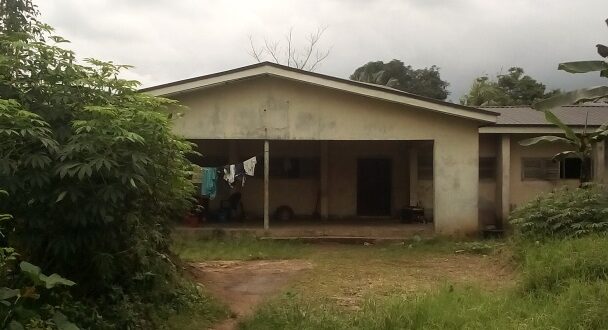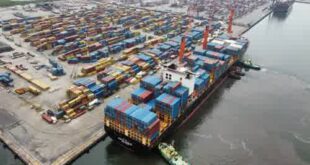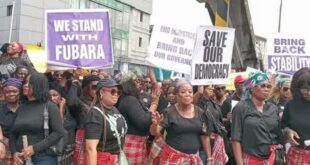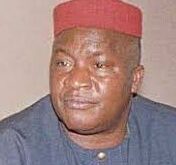By Tunde Uchegbuo
Many oil bearing communities in the Niger Delta region lack necessary infrastructure in spite of several interventionist efforts to improve on the well-being of people in the region.
My position is anchored on noticeable poor quality of life; high level of deprivation; and disparity in the standard of living in such communities, a situation that could be attributed to unfair sharing of revenues generated from oil exploration which ought to be used to enhance the capacity of the people.
The establishment of development agencies like Niger Delta Development Board (NDDB) in 1961; Oil Mineral Producing Areas Development Commission (OMPADEC) in 1992; Niger Delta Development Commission (NDDC) in 2000; and the Ministry of Niger Delta Affairs in 2008 has equally not made appreciable changes.
Rather, oil exploration and the activities of multinational corporations have caused endemic hatred among kinsmen and between villages, a situation that is fuelled by acquisitiveness of those who are fortunate to manage the communal resources meant to positively improve the future and overall well-being of the people.
In some communities, there is unending clash of interest between two groups; a clique that assumes the power to decide how the resources are distributed, or anoints who becomes what, and a class of dispossessed masses craving for inclusion and fairness.
Consequently, the privileged clique employ invasive measures, including using connections with security agents, to intimidate and suppress those that are incline to resist perceived injustices and maginalisation.
Similarly, elections or appointments into positions in such communities are usually associated with covert moves to out-manoeuvre, and often time, leads to resentments that choke the pace of development, due to the fact that even the most brilliant suggestions are viewed with suspicion by the opposing faction.
Against this backdrop, there is need for the body involved in the processes of election into the community development committee in Obelle to eschew bias and adopt a credible option that will be perceived as impartial by all the parties involved.
This appeal has become necessary considering the obvious vested interests of some of the community chiefs who are likely to instigate chaos if they do not succeed in their vindictive actions.
Obelle is one of the oil producing communities in Emohua Local Government Area of Rivers State where crude oil was discovered in 1963; six years after it was first discovered in Oloibiri, in the present day Bayelsa State.
A study on oil exploration in Nigeria, using Obelle and Obagi communities as case study by Justina Adalikwu, Professor of Sociology in Burman University, Canada, asserted that about 50 percent of the total oil output in Emohua local government area comes from the Obelle oil field, which is owned and operated by Shell Petroleum Development Company of Nigeria (SPDC).
Geographically, Obelle is bounded in the north by Elele; in the east by Isiokpo; in the west by Elele-Alimini; and Ibaa in the south. It is about 55 kilometres away from Port Harcourt, and has twenty-two (22) autonomous villages.
Sadly, regardless of its contribution to the economy of the nation, Obelle still suffers from the trials of safe drinking water, irregular electricity supply, dysfunctional health care facility, and dilapidated schools.
According to the study, over 90 percent of the people are engaged in peasant farming, with 74.9 percent of the indigenes asserting that they have not benefitted from oil exploration in the community. This leaves an insignificant 25.1 percent, most likely some SPDC contractors, opinion leaders, and some local chiefs.
Thus, the people of Obelle, in spite of the oil and gas in their land, are wallowing in protracted poverty. Over and over again, the SPDC is accused of failing in its corporate social responsibilities, thereby contributing to the infrastructural deprivations in the community.
However, claims on the company’s website and further inquest have proved that the company provides for yearly scholarships, social amenities, and skill development programmes to its host communities.
Among these are the cradle-to-career scholarship which provides opportunities for brilliant pupils of less-privileged background to attend reputable secondary schools in Nigeria, and the secondary school scholarship which is aimed at enhancing academic achievements among students in SPDC host community schools.
Others are the Niger Delta postgraduate overseas scholarship programme which offers 10 places to candidates from SPDC’s operational areas to study for postgraduate qualifications at three top British institutions, and the in-country merit scholarship programmes which it said has benefitted about 7,392 Nigerian students from SPDC host communities.
There is also the enterprise development programme which the SPDC claimed has trained more than 460 young men and women from Rivers State between 2013 and 2018, under the Shell LiveWIRE programme. It disclosed that the programme has trained 7,072 Niger Delta youths in enterprise development and provided business start-up grants to 3,817.
The company further explained that the programme, which was introduced to help young entrepreneurs convert their bright ideas into sustainable businesses, has created employment and income opportunities for its host communities.
In a related development, the company held that it has spent N202 million on projects in its host communities in Emohua Local Government Area of Rivers State through the GMoU board which it said receives N78.4 million annually, adding that in the last five years, the board received N392 million for development projects in the cluster communities.
Unfortunately, these scholarships, the enterprise development programmes, and other corporate social responsibility offers have barely benefitted Obelle people, prompting allegations of short-change by the company officials, and perhaps, in connivance with some Obelle indigenes.
Another worrisome development is the fact that no indigene of the community is a mainstream staff of the company, except those privileged to work as security guards and labourers at the flow station. Despite these inadequacies, the youths have remained peaceful and receptive to the strangers who come to the area to do jobs which they are well qualified to do if the opportunity is extended to them.
Thankfully, there is a new consciousness among a group of concerned people in the community who are prepared to set a new compass for good leadership and subsequent development of Obelle through helpful criticisms and advocacy for harmony.
This will guarantee that the communal resources which God has endowed Obelle with will engender growth in the land through uprightness in the allocation of what is due to individuals and villages. Until this is attained, the politics of oil revenue in Obelle will remain the community’s albatross, instead of a catalyst for development.
 PH Mundial – Port Harcourt Online Newspaper News Across The Region
PH Mundial – Port Harcourt Online Newspaper News Across The Region





